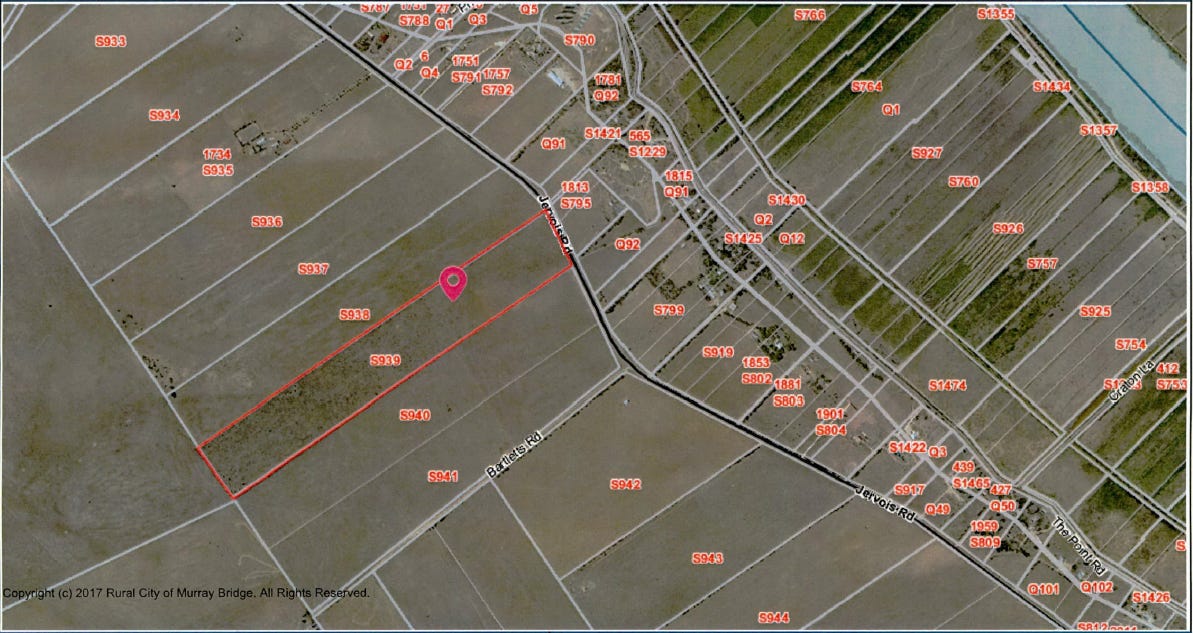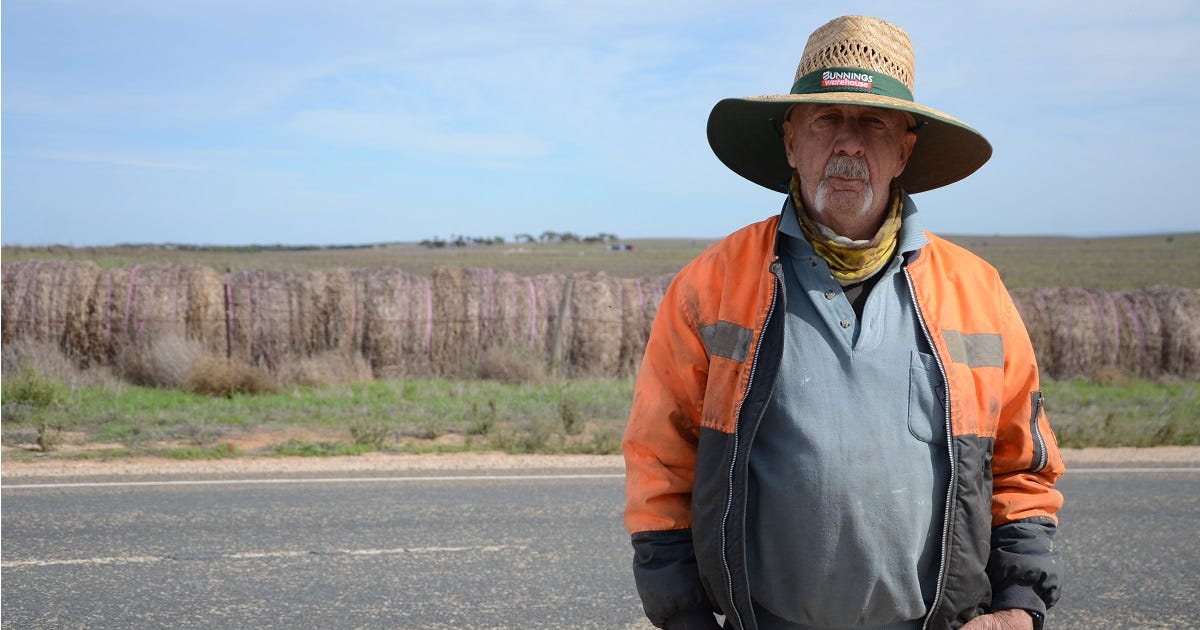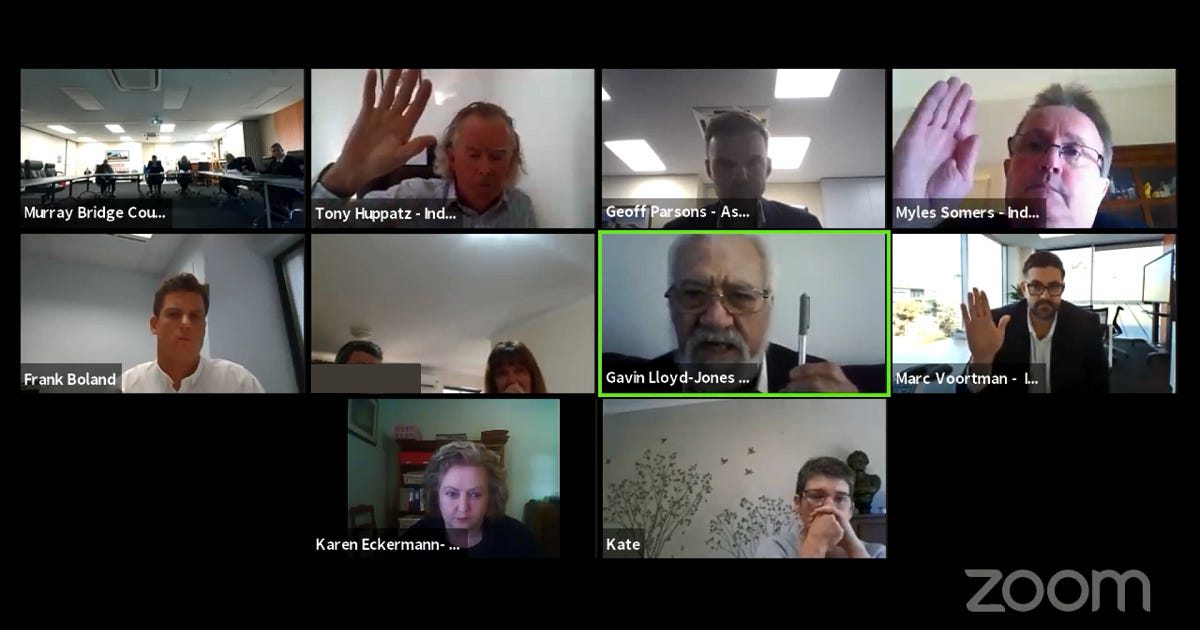Neighbours say they were offered cash to withdraw objection to solar farm
A development at Woods Point has been approved despite pleas from residents.

This story was originally published behind Murray Bridge News’ paywall. Paywalled stories are unlocked four weeks after publication. Can’t wait that long? Subscribe here.

A solar farm at Woods Point will go ahead despite pleas from neighbours, one of whom says her family was offered cash to withdraw their complaint.
Tetris Energy received approval for the project from the Murray Bridge council assessment panel on Friday despite objections from three nearby households.
Most affected will be a family which has already put down a slab on a block next door to the development.
At the panel’s meeting, a member of that family alleged that they had received a phone call from someone who offered them “a certain value” to withdraw their complaint.
They declined the apparent offer.
Tetris Energy director Frank Boland later rejected any suggestion the company had tried to buy its neighbours’ silence, and disputed that such an offer had even been mentioned at the meeting.
At any rate, he told Murray Bridge News, discussions between neighbours were strictly confidential.
Johnston Withers senior lawyer Michael Stannard told Murray Bridge News it was not illegal for a developer to offer cash to a neighbour, so long as there was no threat associated with rejecting the offer.
Any two parties could negotiate a settlement which would benefit both sides – to end a fencing dispute, for instance.
The Murray Bridge council’s community development general manager, Kristen Manson, agreed that it was “not uncommon” for developers and their neighbours to negotiate agreements which involved the withdrawal or modification of public comments.
The council was not a party to such agreements and had no control over them, she told Murray Bridge News.
“We follow the legislative process and our involvement is limited to that,” she said.
Murray Bridge News does not suggest Tetris Energy, or anyone associated with the Woods Point solar farm, has done anything untoward.

Woods Point risks losing its rural character, residents say
The family next door had chosen to set their house well back from Jervois Road to make the most of the rural setting, not knowing the solar farm would eventually be built just 30 metres away.
“The reason we bought the block is to have that rural overview,” said a family member, who asked not to be named.
“That’s now not going to happen.
“We wouldn't have purchased the land if the solar was already in progress – the land wouldn’t have appealed to us.”
Dairy farmer Kate Bartlett, whose family has managed property nearby for more than 100 years, said the visual impact of the solar farm would change Woods Point forever.
“A rural community is what Woods Point is: people who want farming around them, a country feel,” she said.
“We have not spoken to one local in favour of the development, other than the land owner.”

Retiree Paul Walker, who spoke with Murray Bridge News about the development in May, repeated his argument that the solar farm would reduce the value of his property, which he hoped to pass on to his children.
“This is a big whack in the bundle for me,” he said.
“I can’t sell off (the block across the road) now – who would buy it with solar panels right in front of me?
“It has destroyed my hopes and dreams.”
Development will be beneficial, Tetris Energy says
Mr Boland told the panel that the Woods Point site had been chosen for its proximity to Murray Bridge and Tailem Bend, and because the Murraylands received so much sunshine throughout the year.
Tetris had started working on its proposal before its neighbours had sought approval to build the house, he said, and had been unaware of the family’s plans until more recently.
He promised that vegetation would be planted around the solar farm to shield it from view, and that sheep would remain on the property to keep the grass under control.
He also said the company would look to employ local contractors, and sell the power to a local customer if it could.
“Tetris is excited to be developing this project,” he said.
“We look forward to being an opportunity for the area and generating clean, reliable power.”
The solar farm is expected to operate for 30 years.

Development laws need more detail, panellists suggest
The assessment panel’s members suggested that local development laws were not adequate to protect residents who did not want solar farms nearby.
The panel’s decision was not unanimous, and each of the members who voted in favour of the plan expressed some level of regret.
But presiding member Gavin Lloyd-Jones said he had “no choice” but to support the development.
“I understand it must be rather distressing (for neighbours),” he said.
“The representors have put up legitimate concerns.
“But it’s ... the development plan we need to make our decision against.”
Panel member Myles Somers said he felt “hamstrung” by the rules, which made it clear that energy generation was allowed in farming areas.
Marc Voortman said it hardly mattered anyway – if the panel did not approve the development, its decision would surely be overturned in court.
Only Councillor Karen Eckermann voted against the development.
“I can’t ignore the level of opposition to this project,” she said.
“It’s significant, and a lot more compelling than I’ve encountered in previous developments like this one.
“I can’t support this ... Woods Point is not an appropriate spot for this development.”
Development rules can only be changed by the state government, in consultation with local councils and the public.
The current rules for the Murray Bridge district are due to be replaced in September.
Photos, including of Paul Walker at the approximate site of the proposed solar farm (middle), and of the panel meeting (bottom): Peri Strathearn. Map: Rural City of Murray Bridge.





